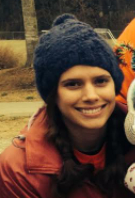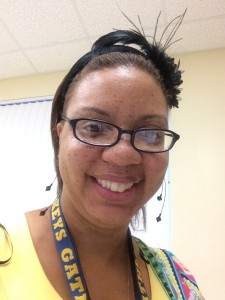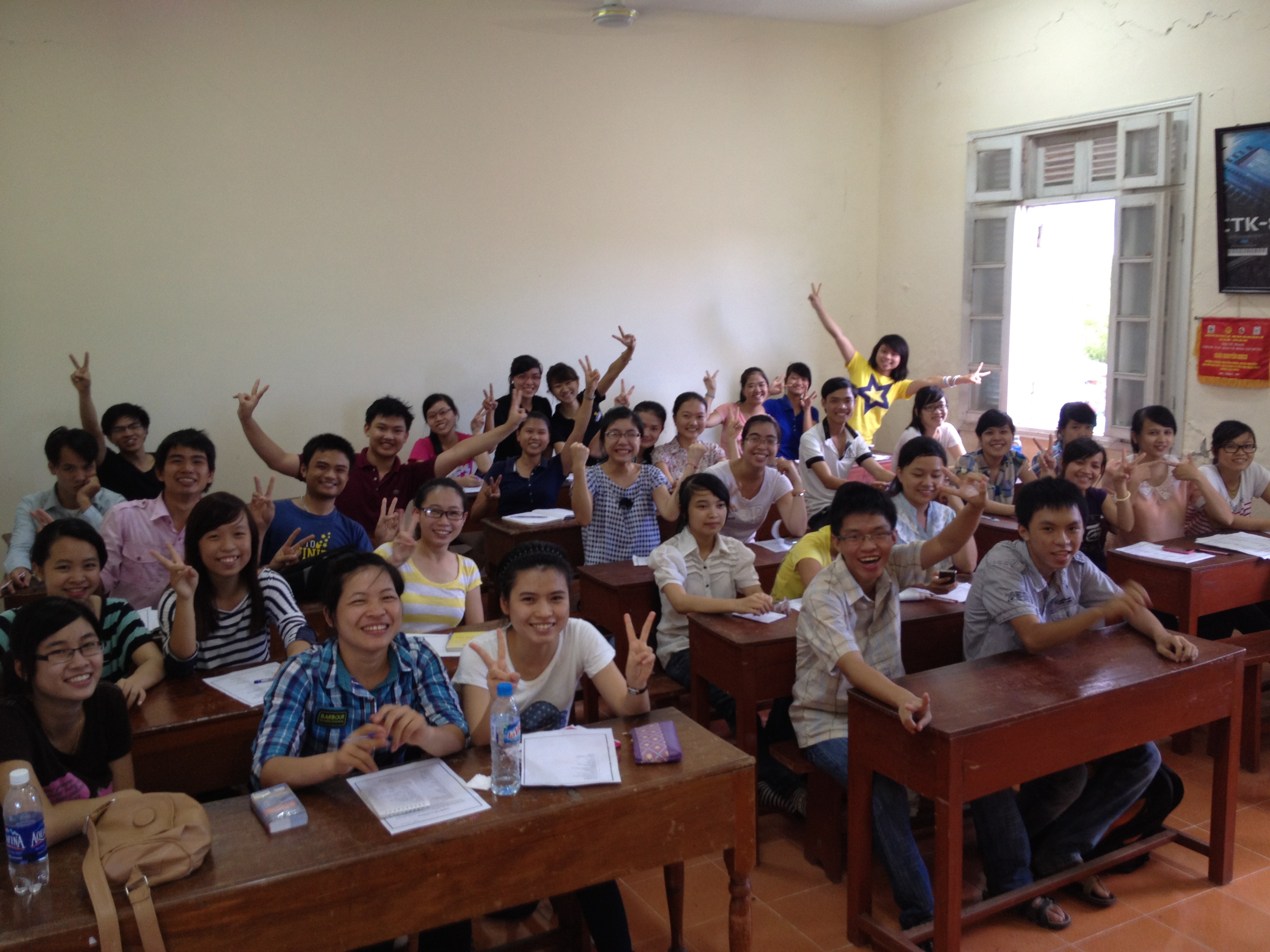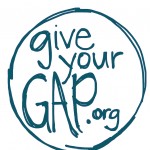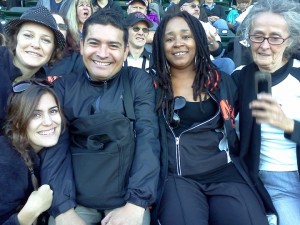Profession: Research Contractor (on the way to becoming an I/O Psychologist) / Student
College: MIZZOU (undergrad) / UNC Charlotte (grad school)
Service Type: AmeriCorps VISTA
Service Dates: August 2012 – August 2013
Service Location: Metro St. Louis, Missouri
Tell us about the nonprofit / social business you worked for during your term of service:
I worked for a small nonprofit in Downtown St. Louis called SGSM (South Grand Senior Ministry) Network. The organization’s mission was to help low-income older adults live safely, healthily, happily, in their homes for as long as possible, as opposed to having to live in a senior care facility. We assisted older adults through partnering with local church’s Senior Ministries. We provided a variety of programs including transportation to doctor appointments and other necessities, minor home repair and seasonal yard work, social events like trips to other cities, health-promotional events called “Lunch & Learns,” and communications in the form of a bi-monthly newsletter. Like any nonprofit, we also held fundraisers including flower sales and dinner-and-dancing events. This organization has since merged with another St. Louis nonprofit and now offers these services with them, under the name Mission St. Louis.
How did you find your position with AmeriCorps?
I decided I wanted to volunteer for AmeriCorps during my senior year of college. I had applied for several positions through the My AmeriCorps portal (https://my.americorps.gov/mp/login.do) and was actually offered another position to work with kids in California before the position I took was even on my radar. What happened was I got an email one day directly from SGSM Network, and it sounded interesting to me. (Organizations do that sometimes when they are recruiting for new positions—they may just randomly email people they see looking for positions on My AmeriCorps). The bonus was that the organization was located in my hometown. After interviewing with them a few days later, I felt comfortable and excited and decided to take the job!
What inspired you to do this kind of work? If you were taking a gap year, what influenced you to do so?
Like many (perhaps most) college grads, I had no idea what I wanted to do with the rest of my life yet. I had graduated with a degree in Psychology and a minor in Business, and was leaning strongly toward going into Social Work, but wasn’t positive at that point. I wanted to do something constructive and semi-related to social work while I figured it all out, so I looked into service. I had heard about AmeriCorps from a friend (who ended up doing two terms with AmeriCorps NCCC after graduation) and started applying.
After getting the email from SGSM Network, I realized that working with older adults might be perfect for me. From the job description, the position sounded very much related to social work, so I thought it might give me good experience.
What was your typical day like?
Busy! Every day was different, but for the most part they would start the same way: Checking my email (like any job) and the office messages on the answering machine. Some days there would be no messages, and some days there would be lots! The messages were always older adults needing assistance in a myriad of ways: A ride to the doctor, their yard cleaned up, a referral for someone to help sign them up for Medicare, etc. The first few hours of my day, I would either relay the messages to the appropriate people or respond to these messages to the best of my ability.
Some days, depending on the demand, I would spend most of my time finding seniors rides to doctor appointments from our pool of volunteer drivers. Some days, I would set up volunteer groups to do a day or two of yard work for several seniors. Some days, I would coordinate or attend a Lunch & Learn at one of our partner churches. Some days, I would plan a day trip for a group of 30-55 seniors. It truly depended on what events were near, but it was never boring.
What were your living accommodations?
I was lucky to volunteer so close to my home, because my wonderful parents let me kick it at their house for the year. This worked out great because, even though we were paid so little as volunteers, I actually managed to save (a very small sum) over the course of the year. I also had the best time living at home one last time before moving out…probably for the rest of my life (if all goes the way I hope, that is!). It was just my mom, dad, little sister and me, before my sister and I both left home around the same time the summer of 2013, suddenly making my parents empty-nesters:(
Share a favorite memory or story from your experience.
During the last week of my term, I was attending all of the social and health promotional events going on so I could say goodbye to as many people as possible in-person. At a Lunch & Learn, I was very happy to run into one of my favorite clients, Helen. I had talked to her over the phone dozens of times, because she utilized our transportation and yard work services frequently. She was very involved in the programs in general and I saw her at many events. I even drove her to a doctor appointment or two over the course of my term. At the Lunch & Learn, I was taken aback that she had a gift for me (she knew it was the last time she would be seeing me). She had written me a sweet card and knitted me a beautiful oven mitt. It touched me so much that she felt so fondly about our relationship, and it made me really sad that I was soon leaving! I’ll always remember that moment, and I’ll always remember Helen.
What have you learned about the nonprofit and social business world in your experience?
I learned that working for a nonprofit is hard work. It is difficult to work for something you care so deeply about, but have so little to give besides physical labor. It is frustrating when you know a particular service or event would be so beneficial to the client, but your funds are not adequate to provide it. This established paradigm made me really admire the long-term employees of the organization. The fact that they care so much about the clients and the cause that they are willing to give so much more than can be given back is honorable.
I learned that nonprofits are important. I don’t know what many of the older adults we assisted would have done without our services. It makes me sad and frustrated to even think about that, because not many people are looking out for low-income older adults. Organizations need to exist to help these people, along with many other groups that do not get nearly as much attention and assistance as they should. That’s why nonprofits are so important.
Finally, learned that nonprofits will forever be near and dear to my heart. As the long-term employees that I mentioned are passionate about the causes they work for, I remain passionate about those long-term employees. This is what has led me to the career I am working toward (hint: it isn’t Social Work).
Do you think you made a unique contribution to your organization as a young person? Is your perspective or approach different from others?
It was interesting working, as a young person, for an organization focused on older adults. I definitely think that all of the AmeriCorps VISTAs, being similar in age, made a unique contribution to the organization because we could offer a fresh take on our existing programs, and were able to update some of the service already in place (such as our bi-monthly newsletters).
I think young people these days are much more technology-savvy and collaborative than generations prior to ours. This is only beneficial to organizations because we know how to get messages out there for all to see! We know how to connect and work with others for the greater good of all! These are aspects that all nonprofits could use a little more of.
What is one thing you wish you knew before you came to your position?
I didn’t really come in with any expectations, which I recommend to anyone soon to start a year of service. However, if I had to choose something, I wish I had known how tired I would be every day after work! To this day, including college, I have never consistently come home from work, eaten food, and fallen asleep at, like, 9 every night than during my service year.
How has AmeriCorps VISTA influenced your life after service?
AmeriCorps influenced my life 100%. If I hadn’t been involved in AmeriCorps, I would be doing something completely different with my life at this moment (see the next question for more on this).
AmeriCorps also sparked my service-oriented self, so now I still enjoy volunteering in my free time! After AmeriCorps, I volunteered for a year for the nonprofit organization Girls on the Run as a Coach. Now, I’m volunteering as an NGS Guide!
Maybe most importantly, AmeriCorps introduced me to some of my best friends in the entire world. One I met at the St. Louis airport on our way to VISTA training in Denver, CO (that was a fun trip!), and she is the kind of friend that will be my future bridesmaid and in my life forever. Another I worked with briefly during our service-year overlap and had such an instant connection that we remain in contact and even celebrated Easter together in Chicago this past year. Another, still, is the volunteer I replaced following his year of service, and who now is practically my neighbor in Charlotte, NC.
Has your experience fit into your long-term goals?
My experience led me to my long-term goals. Like I said, I went into my year of service thinking I was going to become a Social Worker. In fact, during my AmeriCorps, term, I took the GRE, applied to Social Work programs, and even got into a few. It wasn’t until toward the end of my service that I was honest with myself about not being passionate about Social Work. I realized I felt much more strongly about the organization as a whole and all of the intricacies that went into making an organization run successfully. That led me to Industrial/Organizational Psychology. After my service year, I moved to North Carolina, got an internship in the field, and am now working toward my Master’s degree in I/O Psychology. I would love to use what I learn in my program to help nonprofits across the country.
What do you do in your free time?
Besides volunteering, I enjoy watching (way too many) movies and TV shows, I love to read and write (I write for a local blog in Charlotte, NC), and I am a healthy-lifestyle enthusiast (running, hiking, dancing, eating healthily…).
Do you have any advice for prospective gap-givers?
If you’re on the fence about giving a year of your life to service, just do it (credit to Nike). I promise, you will not regret it. Quite the opposite actually: You will look back on your experience and smile.
I already mentioned this, but try to go into your service year with no expectations. Just let it take you where it will!
Would you be willing to take questions from potential gap-givers?
Absolutely, ask away!
How can we connect with you?
LinkedIn: https://www.linkedin.com/profile/view?id=228105168&trk=nav_responsive_tab_profile_pic
Facebook: https://www.facebook.com/anna.swearingen.3
Twitter: @AnnaSwear

